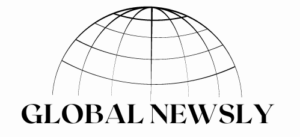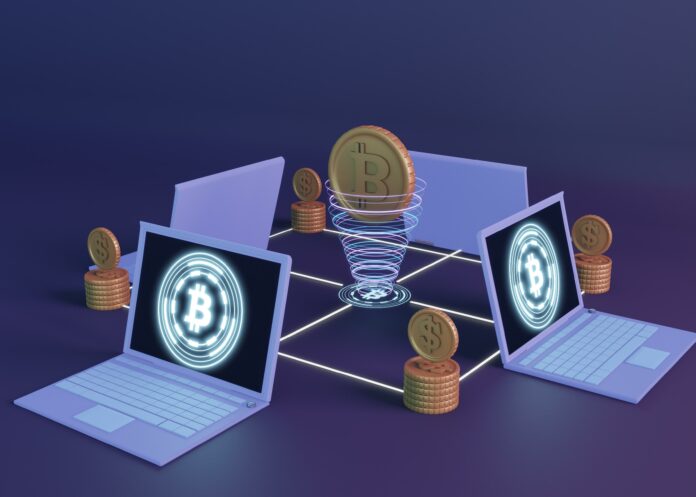Cryptocurrency and decentralized finance companies are an emerging field of finance that employs various cryptocurrency blockchains’ security protocols to increase financial transparency, decrease transaction costs, and unlock liquidity. Smart contracts automate transactions while eliminating human error.
DeFi is an alternative form of finance that’s global and peer-to-peer, pseudonymous, fast, accessible to anyone with Internet connectivity, and overgrowing – providing ample opportunity for innovation. But how have this fields emerged these last years?
What is Cryptocurrency?
Cryptocurrency is a digital representation of value that utilizes blockchain technology. Unlike fiat currency (such as dollars or euros) that derive value from government or company backing, most cryptocurrencies are decentralized and operate peer-to-peer without central authority. As such, they can function as a medium of exchange, a unit of account, and a store of value.
Bitcoin is the best-known cryptocurrency, but thousands of others are out there, and new ones continue to emerge. Despite the hype, cryptocurrencies still lack key features of traditional money, such as widespread acceptance and value permanence. While they can be used to buy products and services from some merchants, many people hold them as investments, hoping their prices will rise.
There are several risks associated with cryptocurrencies. Most are volatile, meaning their prices can quickly go up and down. Some are also prone to fraud, and investors may lose money due to theft or hacking. In addition, many cryptocurrencies are created through a process that uses a lot of energy, which can be environmentally harmful.
Cryptocurrencies are not federally regulated like other financial assets and are not insured by the FDIC or SIPC. This can make them vulnerable to regulatory crackdowns and sudden market volatility. Investors should always thoroughly research any cryptocurrency investment before making a decision. They should also be aware that they will likely be taxed as property rather than currency in the United States.
What is Decentralized Finance?
Decentralized finance, or DeFi, involves developing new financial services built on the blockchain. The aim is to create an alternative to the standard monetary system that is more efficient and transparent. These solutions can help to boost economic growth in emerging markets and developing countries where traditional banking systems have left them underserved.
DeFi companies are scripting a new narrative for the global financial sector by democratizing access, enhancing transparency, and fostering innovation. These companies are leveraging blockchain technology and smart contracts to disrupt the industry.
One of the main advantages of a DeFi solution is that it can reduce costs by eliminating the need for middlemen. For example, the blockchain can make it possible to transfer money directly between two parties without the need for a third party like a bank or credit card company. This can be done in seconds and at a significantly lower cost than standard money transfers.
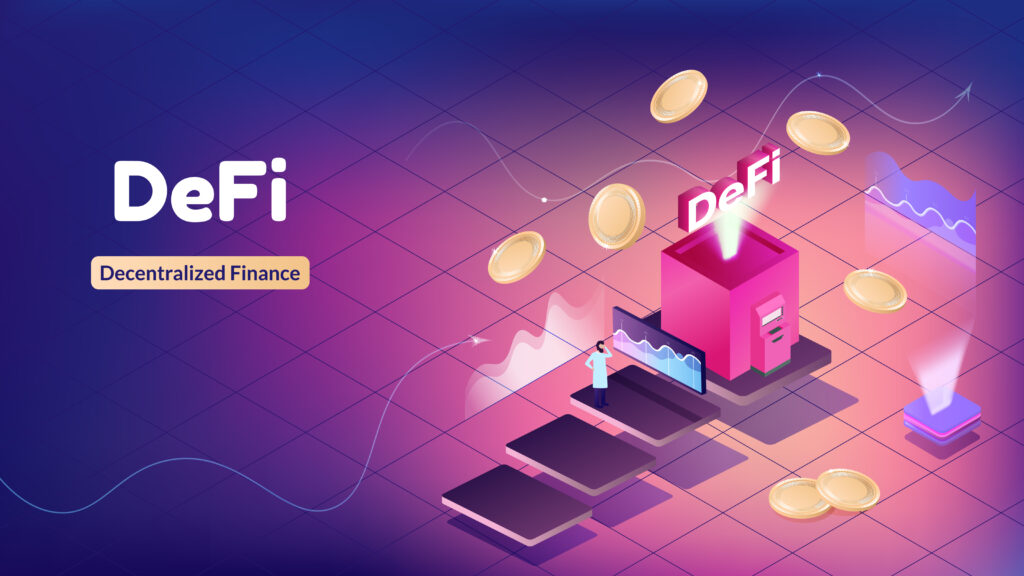
Similarly, the blockchain enables lenders to lend to people who do not qualify for a traditional loan. This can be particularly helpful for small businesses and individuals who do not have a strong credit history and may need help to meet know-your-customer requirements. This could open up the lending market to a new group of potential customers and increase access to capital.
What Are Decentralized Finance Companies?
Decentralized finance companies are a new type of financial company that uses blockchain technology to provide consumers with the ability to transfer, lend, and trade funds without any middlemen. These companies claim to offer a faster, cheaper, and more secure alternative to traditional banking.
But what are these companies offering? The short answer is a way to bypass banks and traditional financial middlemen by providing access to credit, savings, and investments. However, there is much more to this new form of finance than meets the eye.
Decentralized finance is a financial ecosystem based on a public database known as the blockchain. The blockchain records transactions and can be accessed by anyone with internet access. These transactions are then regulated by “smart contracts”, computer programs designed to execute a trade automatically if certain conditions are met.
A large part of the appeal behind DeFi is its transparency and immutability. Every transaction is recorded on the blockchain, which can only be altered with all parties’ permission. This creates a sense of trust between all users that is unobtainable with traditional, centralized finance. Additionally, the blockchain is incredibly fast, allowing for near-instantaneous transfers.
However, decentralized finance has its challenges. Many of the systems built on top of blockchain are at risk from hackers, which can steal funds or cause other harm. Additionally, most potential use cases for DeFi require a large amount of collateral to be eligible. This can limit the number of people receiving loans or investing in assets.
Despite these issues, the popularity of DeFi has increased rapidly over the past year. Its proponents have high hopes for its future, claiming it will disempower gatekeepers and middlemen while empowering everyday people through peer-to-peer exchanges on the blockchain.
But while the rise of DeFi has sparked a lot of excitement, it’s important to remember that it is still in its early stages. The technology could be better, and many issues will need to be worked out before it can fulfill its promise as a revolution in how we do business.
There is a genuine concern that if DeFi successfully eliminates middlemen, it could put many jobs at risk. Many people who work in brokerage companies, payment agents, and other financial intermediaries would be out of a job. This could lead to high unemployment rates, which could affect economic output.
While some of the problems with DeFi are easy to fix, others are more intractable and will likely take a long time to resolve. But as long as the innovators continue to push forward at breakneck speed, they can overcome the barriers and achieve their goal of a more open, direct finance system. After all, like Pacino’s Don Corleone said of the rebel fighters in Godfather 2, if they keep fighting, they will win.
Decentralized exchanges (DEXs)
Decentralized exchanges (DEXs) provide users with an alternative means of trading cryptocurrency without needing an intermediary. DEXs use smart contracts on the blockchain network to facilitate asset swapping. DEXs may help reduce risks related to hackers while helping maintain anonymity for users; however, it should be remembered that DEXs do not always avoid security vulnerabilities.
DEXs have quickly gained in popularity over time due to their ability to facilitate more than just Bitcoin trading. DEXs provide users access to lesser-known cryptocurrencies not offered through traditional exchanges, instant liquidity for new tokens, and a more effortless onboarding experience than centralized platforms, further reducing price manipulation risks and creating fake trading volumes while providing greater transparency into fund movements than their counterparts do through user verification processes.
DEXs offer many advantages over traditional exchanges regarding security, mainly because they do not store private keys or personal data about users – this means hackers cannot easily access user assets. Furthermore, many DEXs use smart contracts that facilitate transaction processes, making it harder for bad actors to interfere.
DEXs offer another distinct advantage: their scalability. Where centralized exchanges may struggle to handle large orders per second, DEXs can take thousands of transactions simultaneously and resist censorship – making them ideal for areas without financial infrastructure.
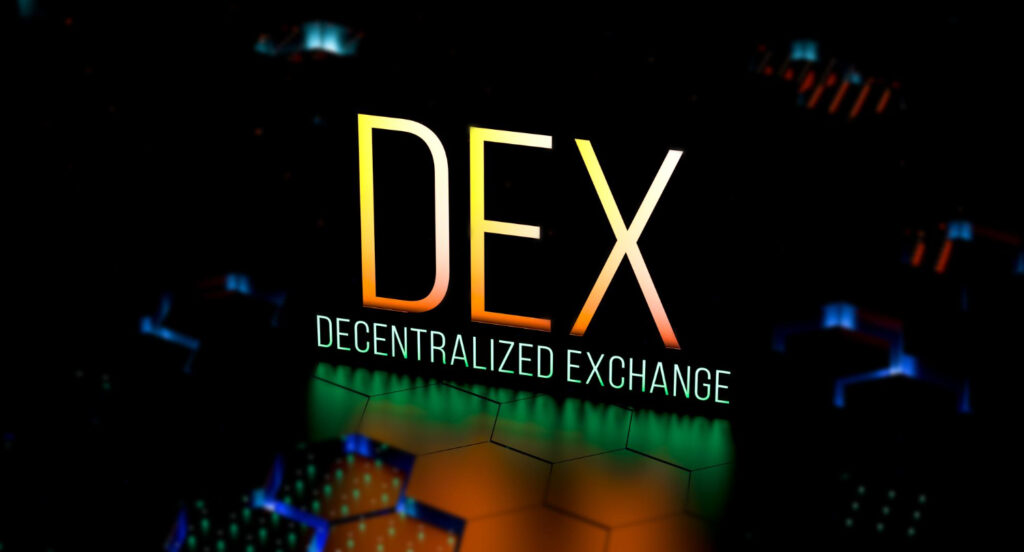
Some of the significant drawbacks of DEXs include their reliance on blockchain networks and the limited scalability of Ethereum. Ethereum was initially designed to function at more minor scales; even though a transformative upgrade with massive scalability solutions is in development, it will take time before DEXs reach these levels of functionality.
Though decentralized exchanges (DEXs) are an integral component of the cryptocurrency ecosystem, they have some drawbacks that must be addressed. With their limited scalability, DEXs may not be as user-friendly as centralized exchanges, meaning they may not be accessible to everyone. Furthermore, security issues must be considered before using one, so be wary when selecting.
Decentralized lending platforms
Cryptocurrency is revolutionizing how we lend and borrow money, but this process comes with risks. Hacking and security breaches remain threats. Furthermore, borrowers could struggle to pay back debts on time, resulting in financial penalties such as the seizure of property or criminal charges in certain countries.
Decentralized lending platforms have emerged to reduce these risks and make this essential banking function easy and transparent. Leveraging blockchain technology, these platforms connect lenders and borrowers through smart contracts secured with cryptocurrency as collateral deposited for loans secured using digital currency collateral deposits deposited as collateral for each loan amount borrowed – once enough collateral has been deposited to cover its entirety, they can exchange it for the borrowed cryptocurrency loaned – much faster and simpler than traditional banks which require multiple steps for risk evaluation before loan approvals can take place.
There are various lending methods or borrowing crypto, and your best choice will depend on your needs. One popular way is connecting your wallet to a DeFi platform and earning passive income by lending out coins. These platforms often offer higher interest rates than high-interest savings accounts and even implement KYC/AML regulatory protocols to limit risks.
DeFi is another popular DeFi option that uses lending pool protocols. These protocols enable any crypto holder to deposit their assets into a shared pool that then loans out its loans at interest to borrowers who pay back over time; any return generated is divided among all lenders to ensure stable rewards are distributed among them.
Some lending protocols also offer the chance to lock your cryptocurrency and earn interest over an agreed-upon timeframe, providing an excellent passive income source while protecting against price fluctuations. However, it should be remembered that DeFi platforms do not carry federal deposit insurance protection. Therefore, choosing an established DeFi provider should be prioritized over other alternatives.
Decentralized transactions
Decentralized transactions utilizing blockchain allow users to send funds without a central authority, unlike banks that operate only during business hours.
Current leaders for DeFi adoption include the US and Vietnam, according to a Chainalysis report. Thailand, China, and the UK also rank highly.
DeFi is a decentralized financial system.
DeFi is a system that utilizes blockchain technology to allow individuals and businesses to invest and secure funding without using traditional financial institutions. This platform facilitates tokenizing tangible world assets like real property and then securely storing them in digital wallets that contain private keys used to identify their owners and prevent theft; should one of these keys go missing, access to your assets will become permanently lost.
DeFi is an alternative financial model in which financial services firms are removed from the equation, helping reduce fees and provide more transparency for users. Furthermore, this platform facilitates peer-to-peer lending and borrowing using cryptocurrency assets such as Bitcoin or Ethereum.
DeFi offers many advantages, yet it is essential to recognize its risks. A lack of consumer protections may open the door for scams and fraud; additionally, few data sources allow researchers to evaluate how this new technology affects finance and the economy.
It is a peer-to-peer financial system.
Peer-to-peer (P2P) lending has quickly emerged as an attractive alternative to traditional financial systems, offering investors and borrowers greater returns with faster access to credit.
However, P2P loans may come with certain risks that must be carefully evaluated before participation. For instance, unregulated P2P loans only sometimes offer protections of centralized financial systems. The credit risk can often be high among potential borrowers.
Decentralized Finance, or DeFi, is an emerging blockchain-based ecosystem offering permissionless financial services that enable users to trade, lend, invest, and purchase insurance without needing an intermediary. Smart contracts are computer programs that execute when certain conditions are fulfilled, and a public database known as blockchain records these transactions automatically and reliably.
It is a cryptocurrency system.
Decentralized Finance (DeFi) is an emerging financial technology using cryptography to remove third parties and centralized institutions from financial transactions, allowing individuals to invest and borrow capital without banks or brokerages as intermediaries. Supporters claim that DeFi democratizes investing and eliminates discriminatory practices that kept certain groups out of markets in the past.
DeFi is built upon blockchain, the technology powering Bitcoin and other digital currencies. Users of DeFi can utilize blockchain’s capabilities to create, trade, and manage digital assets, as well as transfer ownership through private keys (acting like passwords) stored on computers that operate the blockchain network that cannot be changed or deleted.
These features make DeFi an unalterable financial system whose potential could significantly transform our financial lives. Still, there are risks to consider before considering decentralized finance.
It is a blockchain system.
Decentralized finance (DeFi) is an emerging technology that utilizes blockchain to remove third-party intermediaries from financial transactions, enabling individuals to borrow, lend, and stake digital tokens decentrally without going through institutions – otherwise known as peer-to-peer (P2P) finance.
DeFi is powered by digital assets and apps that connect users with exchanges in an immutable, transparent way. These apps are regulated by smart contracts running on the blockchain that automatically verify transactions – making DeFi a safer and more efficient means of handling finances than traditional methods, which involve costly bureaucracy.
Decentralized exchanges (DEXs) have proven to be one of the most significant breakthroughs in decentralized finance, providing an alternative method of matching buy and sell orders without using a central limit order book. DEXs use on-chain liquidity pools to refund both sides of a trade, such as those featuring pairs such as ETH/USDC for instantaneous swapping between tokens within these pools backed either by fiat or crypto collateral; some even utilize Chainlink Proof of Reserve for continuous audits on-chain to maintain their peg.
Smart contracts
Smart contracts are programs on blockchain that automatically execute when certain conditions are fulfilled, providing a cornerstone of cryptocurrency and decentralized finance (DeFi). Smart contracts form the backbone of cryptocurrency and DeFi applications. They can also be combined into more complex applications using decentralization technology called decentralized applications (dApps). Their leading role is ensuring transactions or deals follow through according to agreement – unlike traditional centralized financial systems, which rely on human trust verification, intelligent contracts establish their own rules through code.
Smart contracts have revolutionized many business processes and can be used for anything from swapping currencies to building trust between parties. Stored on a blockchain like Ethereum, these contracts are transparent and self-executing – no middlemen are needed! Furthermore, being coded directly onto the blockchain makes verification an effortless process that anyone can verify.

Smart contracts can automate various tasks, such as financial settlement, insurance policies, credit authorization processes and legal procedures, supply chain agreements, and crowdfunding campaigns. Smart contracts also provide high levels of security as they’re recorded on the blockchain – making them virtually untameable. Plus, they reduce middlemen fees, which saves both money and hassle!
Smart contracts predate both cryptocurrency and blockchain technology yet have since become central components. Smart contracts promise to transform traditional centralized finance by replacing human trust with code trust. Smart contracts on a blockchain can be programmed to carry out tasks based on conditions within them. They can also identify an oracle that updates information and verifies fulfillment of contract clauses.
Decentralized finance holds immense potential for investors, and its use is becoming more mainstream. However, it should be remembered that decentralized finance is still in its early stages, with several issues needing to be resolved before widespread adoption can occur, one point being whether decentralized finance reduces volatility in financial markets.
Decentralized Finance in Europe
The decentralized finance (DeFi) market is growing but needs challenges. Many regulatory bodies have needed help keeping up with the pace of new digital financial innovations and understanding how to regulate them. Some have even banned or disallowed some newer ones until they can make sense of them.
Nonetheless, DeFi has been increasing because of its ability to reduce the costs associated with traditional financial intermediation. This is especially true in Europe, where an aging population demands higher yields in their institutional investments, and high-interest rates are stifling bank profitability. As a result, they’re turning to DeFi platforms for their yield needs.
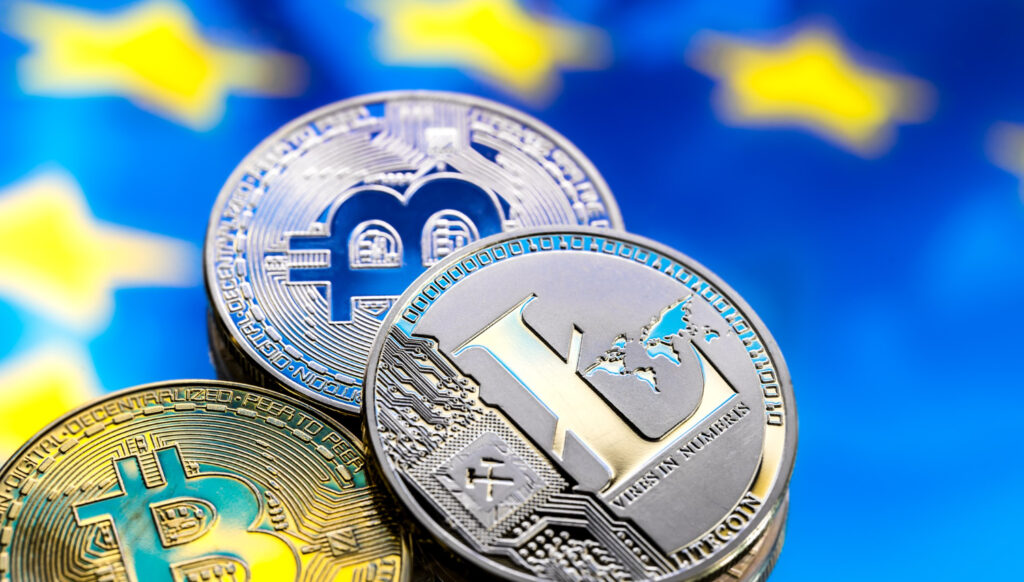
In addition to the cost savings, DeFi offers other advantages that appeal to investors. For example, it’s a peer-to-peer product that eliminates intermediaries and allows people to invest in what they want rather than what’s on sale at the local mall. This makes it easier for investors to diversify their portfolios and find niche products they may not have been able to access otherwise.
The European Union has been working on many initiatives to help create the regulatory framework for DeFi, including a proposal to regulate markets in crypto-assets and a pilot regime for market infrastructures based on distributed ledger technology. Both of these will be essential tools for DeFi, as they’ll establish a standard set of rules that could be applied to other countries and global markets.
Decentralized Finance in the US.
Decentralized finance is an emerging sector of the financial industry that leverages a public database called a blockchain over the Internet to offer financial services without a trusted central intermediary. These include payments, lending and borrowing, trading and investments, capital raising (crowdfunding), and insurance. It is characterized by being globally accessible, fast, low-cost, and pseudonymous.
The rise of DeFi is mainly due to the rapid growth in programming capability on blockchains, which has allowed the creation of smart contracts — computer code that can be invoked and enforced by users without the intervention of any third party.
While DeFi is an exciting development, it should be approached with caution. The literature on this topic is overwhelmingly positive, and many studies conclude that DeFi will transform traditional finance in exceptional ways. However, we must also be mindful that technological innovation often comes with its own set of problems.
One concern is that DeFi will eliminate the need for many intermediary jobs. This will harm the economy because financial intermediation has been linked to economic output. Another problem is that DeFi may be vulnerable to cybersecurity risks and other issues that must be fully understood. For example, smart contracts could be used to facilitate illegal activities.
